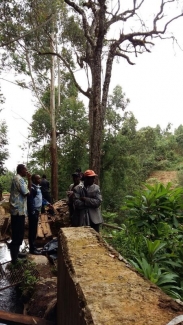Measurement of inequality using household energy consumption data in rural China
Measuring inequality can be challenging due to the limitations of using household income or expenditure data. Because actual energy consumption can be measured more easily and accurately and is relatively more stable, it may be a better measure of inequality. Here we use data on energy consumption for specific devices from a large nation-wide household survey (n = 3,404 rural households from 12 provinces) to assess inequality in rural China.



